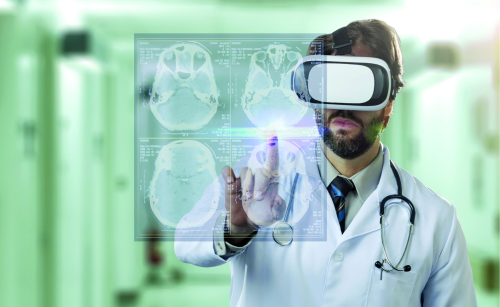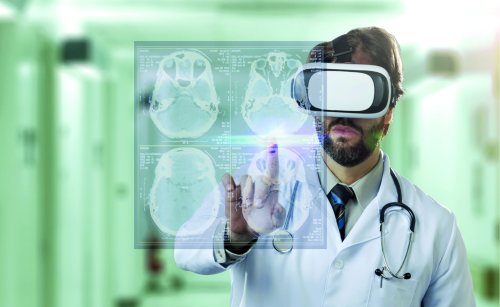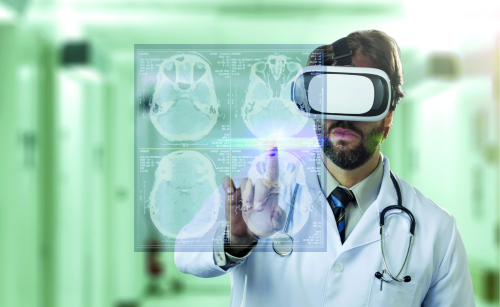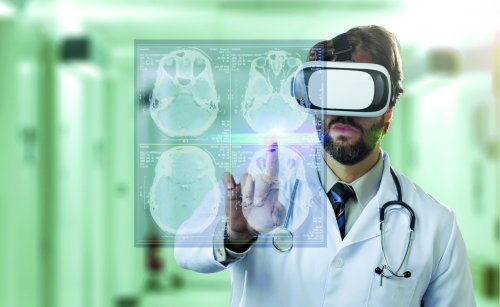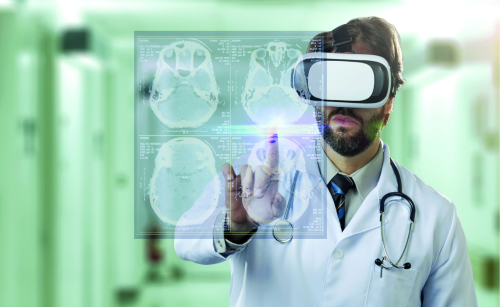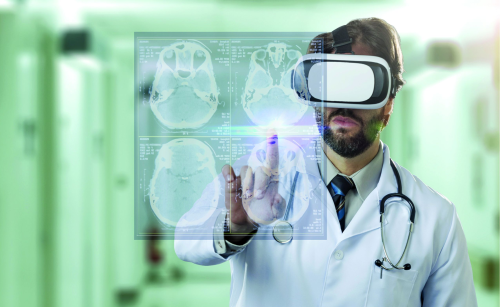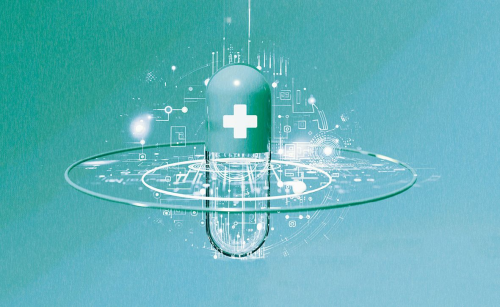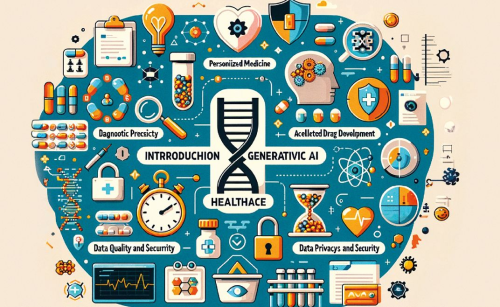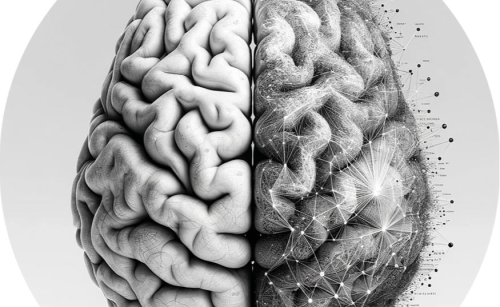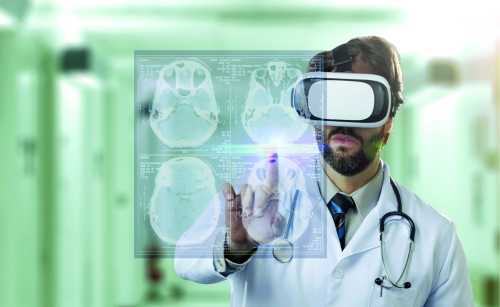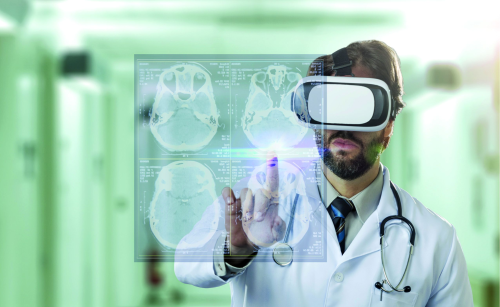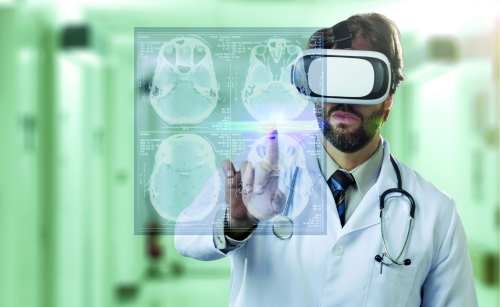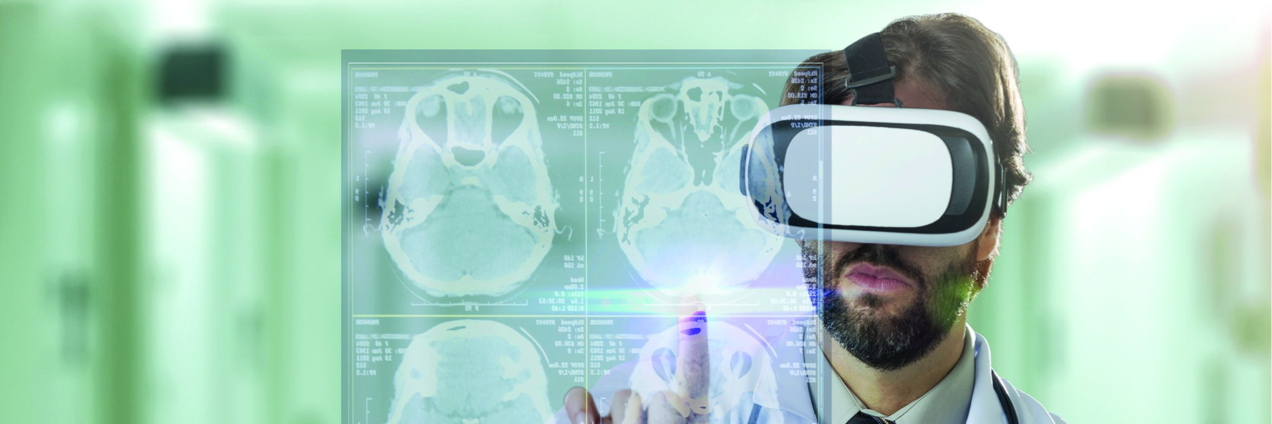
Editorial
In a world where technology is evolving at an exponential rate, artificial intelligence (AI) stands out as a catalyst for change, particularly in the healthcare sector. Massive data analysis has a long history in healthcare, with genomics in particular, and big data has delivered on its promise in medical imaging in particular. Thanks to the growing availability of data of all kinds, AI has recently found its way into all areas of healthcare through a host of specialized applications and by being integrated into most medical devices, for example to detect pathologies early, formulate more precise diagnoses, personalize treatments or automate repetitive tasks. Recently, generative AI has opened up new, even more disruptive perspectives for the healthcare system. Numerous recent publications describe this situation and discuss the contribution of AI to healthcare and its growing adoption1.
In this dossier, we explore in sixteen articles the many facets of AI applied to healthcare for a variety of uses, without claiming to be exhaustive, seeking to highlight the challenges posed and the future prospects generated.
Initially, three articles aim to set out the framework for AI in healthcare, firstly from the point of view of an institutional structure for innovation (AIS), then by a healthcare practitioner (Pr D. Maucort-Boulch, HCL & CNRS) and finally concerning a key field of application that is oncology (J. Abecassis, INRIA).
Then, through five articles, we review several specific and varied uses concerning AI in medical imaging (P.H. Conze, IMT & LaTIM), AI in radiotherapy (C. Robert, Université Paris-Saclay & IGR), AI for endoscopy (Pr X. Dray, Hôpital St Antoine & Augmented Endoscopy), AI and drug prescription (V. Bouvier, Vidal Group) and finally AI in health insurance (V. Lacam-Denoel, Proxicare).
Following on from this, in four articles we address the specific prospects of the recently emerged generative AI for the healthcare sector. First, we give a nod to this topic with a text taken directly from ChatGPT 4, followed by an introductory article on generative AI in healthcare and its prospects (Dr. S. Barrit, Université Libre de Bruxelles & Science). We continue with two articles addressing specific, even unexpected, uses of this technology, one concerning protein generation (J. Holland, journalist), and the other focusing on uses in pedagogy (Pr P. Staccini, CHU de Nice & Université Côte d'Azur).
Finally, we review some of the technical, legal and ethical challenges of AI in healthcare with the last four articles. The first deals with the federated learning technique and its advantages (M. Clerc with A. Bellet and M. Lorenzi, INRIA), the next with the need to prepare data for AI (F. Mougin with G. Diallo, Université de Bordeaux), the third with the challenges posed by AI from an ethical point of view (Pr B. Seroussi, Sorbonne University, AP-HP, LIMICS & Ministry of Health), and finally the last one explains the associated regulatory and legal issues (Maître L. Huin, Cabinet Houdart & Associés).
All these articles bear witness to the fact that we patients can expect an influx of AI-based tools in all facets of our healthcare in the future, with legitimate concerns and questions that this may sometimes raise. We will all, however, most certainly find ourselves around a purpose that AI will most certainly ensure: bringing more HUMAN TIME to individualized Care support! We hope that this edition will stimulate thought and interest in this key area for the future of our health.
A few references
https://www.nature.com/articles/s41746-024-01010-1
https://www.academie-medecine.fr/systemes-dia-generative-en-sante-enjeux-et-perspectives/
https://observatoire-competences-industries.fr/etudes/edec-industrie-de-la-sante-3/
https://www.inserm.fr/dossier/intelligence-artificial-and-health/
https://op.europa.eu/en/publication-detail/-/publication/fb8d8ec2-55a0-11ed-92ed-01aa75ed71a1
https://www.rtflash.fr/l-artificial-intelligence-reinventing-medicine/article
https://medicalfuturist.com/7-things-to-expect-from-ai-in-healthcare-this-year/

Michel BARTH
A graduate of the Ecole Polytechnique and Télécom Paris, Michel is Chairman and co-founder of ENoving. An expert in strategy, innovation and change management, Michel supports companies and players in the healthcare sector in their innovation projects linked to new business models. He also lectures at a number of schools. He is an expert with EIT Health and co-leads the X Santé Biotech group.

Daniel LEGENDRE
Graduate of the Faculty of Medicine Paris VI, Ph.D Public Healthcare HSM Boston, is senior medical advisor to ENoving. Daniel was a member of the
of Deputy Pierre Lasbordes. He has been involved in healthcare IT and telemedicine for over three decades.
Authors







